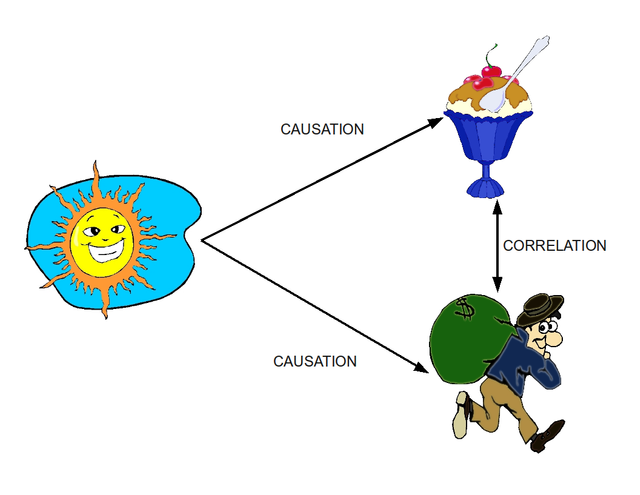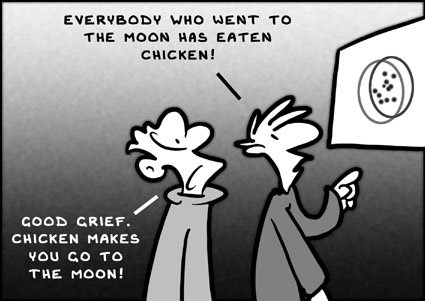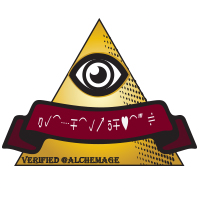The Study of Human Behavior: Causation and correlation in the social sciences
How would you react if someone told you that they could determine your behavior?
You would probably laugh and ignore the person's claim, or maybe you'd be intrigued and ask to know more. But why would you have this specific response? The prevailing idea before the 19th century was to blame the stars, or the gods, etc. However, the use of empiricism was shown to be pertinent to the study of human behavior when August Comte greatly extended the study of sociology with his "System of Positive Philosophy."¹ Today, many people would claim that there is a single overarching cause which lead you to enact this behavior when specific stimuli are encountered, such as self-interest. Still many others would claim that there are a myriad of causes, each interacting uniquely with one another depending on the situation at hand. So which is it: the stars, self-interest, or a multitude of changing influences?

Source
Sociology as a field of study uses the scientific method to determine causal and correlational relationships between variables.
A causal relationship is one in which two variables have a direct interrelation, and that one causes the other. To ascertain a causal relationship between variables, especially in the social sciences, is extremely difficult. There may be other variables which are affecting the results which are not accounted for in the measurements. Without isolating the variables in an experiment completely, one can only deduce a correlational relationship. A correlational relationship is one which states only that two variables are interrelated.² Research has shown that people who are good public speakers are often chosen to be leaders. There is a correlation between being adept at giving public speeches and being put into a leadership position; however, this does not conclude that being good at public speaking causes one to become a leader. Extraneous variables affecting the situation often initially avoid detection. The person chosen to be a leader might also have intimate interpersonal ties with their cohorts which helps bolster their decisions. Thus, correlation does not tell us whether A causes B to occur.

Source
While biologists have certainly begun to determine that other species have a fully developed sense of self (at least in accordance as we know it, Thomas Nagel³ would disagree that we could even fathom such), things like chemical reactions, cells in a body, comets, moons, etc, seemingly exhibit none of the same signs of self-awareness as we do. An argument for some rudimentary form of awareness could be formed using the double slit experiment⁴ as evidence, but I digress, a philosophical argument of this kind would detract from the original idea.
One of the biggest difficulties to studying human behavior is the fact that every behavior is determined on an individual level. Each person's unique personal reel of historic events, shaping moments in their lives, and more, is brought to the forefront when they are faced with a decision making stimulus. Human behavior on an individual level consists of a seemingly endless catalogue of influences. Biological entities as complex as humans are constantly changing.⁵ Society and culture are forever in a shape-shifting dance as each influences change in the other. So when we study groups of people and human behavior in attempts to try to determine relationships between the variables in behavior, we tend to only be able to establish those relationships which are correlational in nature.

Source
Literature Cited
¹:https://plato.stanford.edu/entries/comte/#CouPosFriMil
²:https://www.socialresearchmethods.net/kb/relation.php
³:http://faculty.arts.ubc.ca/maydede/mind/Nagel_Whatisitliketobeabat.pdf
⁴:https://plus.maths.org/content/physics-minute-double-slit-experiment-0
⁵:https://courses.lumenlearning.com/boundless-sociology/chapter/the-sociological-perspective/
LOVELAUGHTER&&XHAOS
High Priest, Loser of Found Souls, Temple of Appled Thought
Erisian Ataxia Troupe : Caste of the Pulleiaceus Sun

If a science dealing in human behavior does not deal in what determines human behavior, then I don't know in what sense it could be called a science.
Something being scientific simply means that it follows the scientific method of observation-->hypothesis-->test-->refine. Science tends to not prove many things but rather determines the most likely cause. Natural sciences can get rather close to causal relationships because many things are the same across the board, such as how an acidic hydrogen reacts in water. But humans are not the same across the board, thus correlation is the only thing that can be determined.
I agree, but the idea of correlation itself relies on the idea of a cause of some sort. Even if two clocks are synchronized and so always tell the same time without any causal relation between them, still the hand that synchronized them is the cause of their telling the same time. As science advances, we'll figure out what causes the differences among those individuals and then we'll be talking about causes.
You are correct in that correlation implies that there is a cause. But as I stated previously, human behavior is too varied to map a cause, only causation can be established.
at least that is being taken into account, the fact that everyone is an individual. In my experience that is rarely done when it comes to actually treating people within the medical system. We are complex beings indeed and no one reacts the same as the other, with so many layers upon layers that make up our being. Your post kind of read like that to me, in union with the subject you are discussing xx
So many variables . Makes us very fascinating but also very unpredictable at the same time... which can be a frightening thing. Love that last meme. Knew my chickens were a sign of steem mooning! Xxx
Posted using Partiko Android
Questioning & clarifying the difference between cause & correlation is a game changer. And so often we get that wrong in our own impatient, half-arsed conclusions.
Posted using Partiko Android
This post has been voted on by the SteemSTEM curation team and voting trail. It is elligible for support from @curie.
If you appreciate the work we are doing, then consider supporting our witness stem.witness. Additional witness support to the curie witness would be appreciated as well.
For additional information please join us on the SteemSTEM discord and to get to know the rest of the community!
Please consider setting @steemstem as a beneficiary to your post to get a stronger support.
Please consider using the steemstem.io app to get a stronger support.